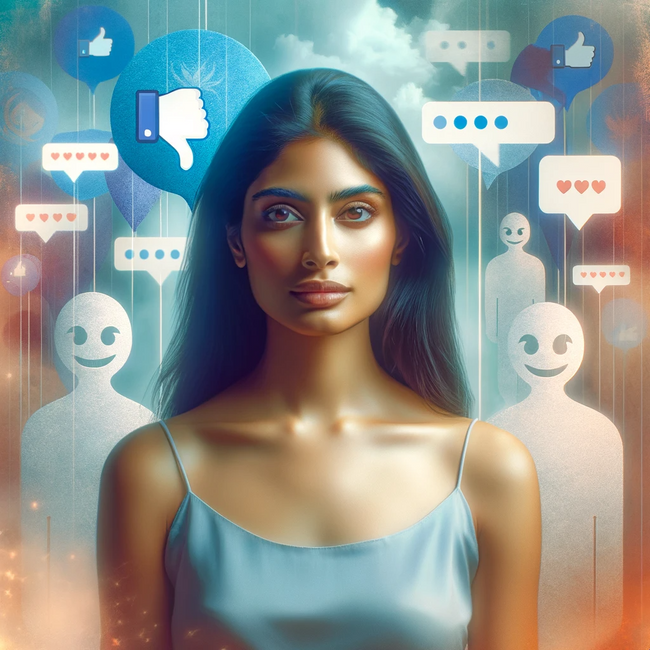Dealing with Trolls and Negative Feedback: A Mental Health Perspective

In the age of social media, online models and influencers are often seen as the epitome of success and confidence. Their lives, as portrayed through meticulously curated posts and stories, seem nothing short of glamorous. Yet, behind the veneer of perfect selfies and trendsetting posts, lies an unspoken battle that many face - dealing with internet trolls and negative feedback. This struggle is not just a professional hazard; it has profound implications for mental health.
Understanding the Impact
Trolls and negative comments can range from mildly annoying to deeply abusive. For influencers, such interactions are not just occasional, but a regular part of their online existence. The effects can be devastating, leading to anxiety, depression, and even a loss of self-worth.
The mental health of online personalities is an intricate balance. On one hand, they rely on social media engagement for their livelihood, while on the other, they must navigate the minefield of public opinion. The impact of negativity is magnified by the very platforms that provide them with a voice and an audience.
Establishing Boundaries
One of the first steps in dealing with this is establishing firm boundaries. Influencers must decide how much interaction is healthy and where to draw the line. This could mean setting specific times to read and respond to comments, using filters to block certain words, or even hiring a social media manager to act as a buffer.
Boundaries are not just about physical actions but also mental ones. It’s about learning not to internalize every negative comment and recognizing that feedback is not always a reflection of reality.
Building a Supportive Community
Cultivating a positive environment online is crucial. This includes actively engaging with supporters and building a community that uplifts rather than tears down. Influencers can foster this by spotlighting positive interactions and showing appreciation for their community's support.
By doing this, influencers and models create a network of individuals who are invested in their well-being and who can provide a counter-narrative to the negativity.
Self-Care Practices
Mental health hygiene is as vital as physical health. For influencers, this means integrating self-care practices into their routine. Meditation, exercise, and hobbies away from the screen can all be powerful tools for maintaining balance.
Moreover, regular digital detoxes, where one disconnects from all social media, can help restore a sense of self and reduce the impact of online negativity.
Seeking Professional Help
There should be no shame in seeking help. Therapy can be invaluable for those whose mental health is affected by their online presence. Mental health professionals can offer strategies to cope with stress, deal with the public scrutiny, and rebuild self-esteem eroded by negative feedback.
Educating the Audience
Influencers have the power to educate their audience about the impact of their words. By opening up about the toll that trolling can take on mental health, they can advocate for a kinder, more empathetic online culture.
In Conclusion
The relationship between influencers and their online audience is complex, and the psychological toll of dealing with trolls and negative feedback is a reality that can no longer be ignored. By acknowledging the mental health risks and taking proactive steps to address them, online models and influencers can protect their well-being while continuing to inspire and entertain. Remember, in a world where you can be anything, being kind and considerate can make a world of difference, both offline and online.
